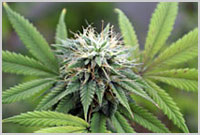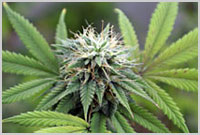November 26, 2019
 The occasional use of cannabis during late adolescence is not independently associated with adverse effects on cognitive abilities in young adulthood, according to longitudinal data published in the journal Drug and Alcohol Dependence.
The occasional use of cannabis during late adolescence is not independently associated with adverse effects on cognitive abilities in young adulthood, according to longitudinal data published in the journal Drug and Alcohol Dependence.
A team of investigators affiliated with the University of Colorado at Boulder assessed the impact of cannabis use on cognition, executive function, and working memory in 856 individual twins. Cannabis consumers were compared to their non-using twins in late adolescence and then again in their early twenties. Most of the cannabis consuming participants in the study reported occasional use of the substance, but not daily use.
Authors found “little support for a causal effect of cannabis use on cognition. This conclusion is consistent with those from previous twin studies, which suggest that cannabis use does not cause a decline in cognitive ability among a normative cannabis using sample.”
They concluded, “Results suggest that cannabis use may not cause decline in cognitive ability among a normative sample of cannabis users.”
The findings are consistent with several prior studies which also failed to show significant changes in either cognitive performance, brain morphology, or intelligence quotient due to cannabis exposure. Specifically, a 2018 literature review published in JAMA Psychiatry concluded: “Associations between cannabis use and cognitive functioning in cross-sectional studies of adolescents and young adults are small and may be of questionable clinical importance for most individuals. Furthermore, abstinence of longer than 72 hours diminishes cognitive deficits associated with cannabis use.”
An abstract of the study, “Investigating the causal effect of cannabis use on cognitive function with a quasi-experimental co-twin design,” appears online here. Additional citations are highlighted in the NORML fact-sheet, “Marijuana Exposure and Cognitive Performance.”











